Trump-Russia inquiry: President 'looking forward' to interview
- Published
President Trump said he welcomed being quizzed by Mr Mueller
President Donald Trump has said he is prepared to be questioned under oath as part of an investigation into alleged Russian meddling in the 2016 US election.
He said he was "looking forward" to it, subject to the advice of his lawyers.
Investigators are assessing if the Trump campaign colluded with Russia to influence the election in his favour - a claim denied by Mr Trump and Russia.
Investigators will also determine if Mr Trump obstructed the inquiry.
The US intelligence community has already concluded that Moscow tried to sway the presidential election in favour of Mr Trump.
The president had previously said he thought an interview was "unlikely" because there had been no collusion.
He has called the Russia investigation a "witch hunt" and a "hoax".
Speaking at the White House on Wednesday, Mr Trump maintained he was "absolutely" prepared to be questioned under oath by the top investigator.
"There's been no collusion whatsoever, there's no obstruction whatsoever," he said.
On Thursday morning Mr Trump landed in Zurich, on his way to the World Economic Forum in Davos. He is the first sitting US president to do so since Bill Clinton 18 years ago.
How will Trump's questioning take place?
The president's lawyers have been talking to the investigation team led by justice department special counsel Robert Mueller about an interview, and the form it might take.
The questioning could happen face-to-face, in writing, or it could be a combination of both.
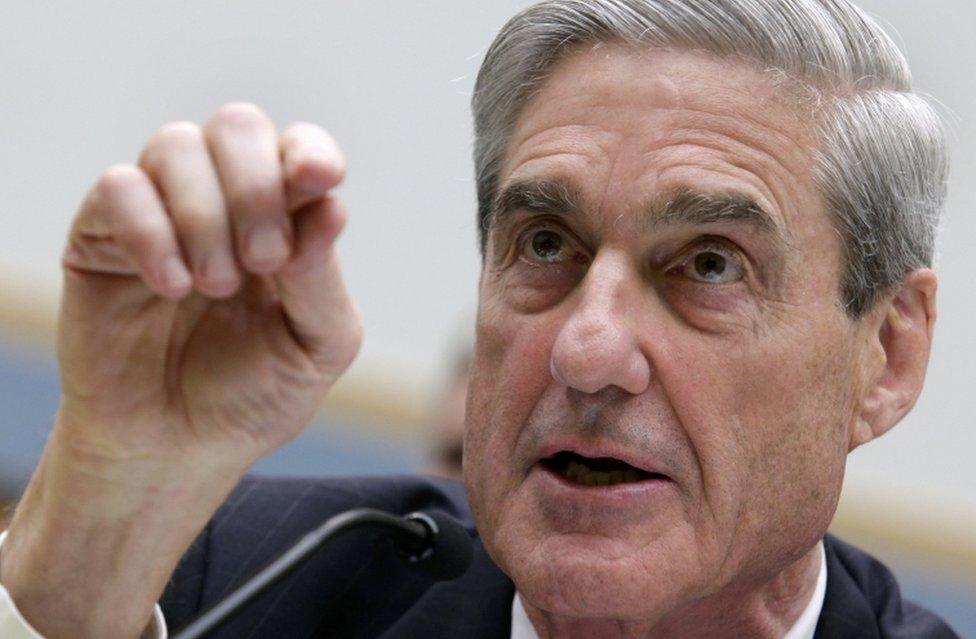
Special council Robert Mueller is a former FBI director
As to when it might happen, Mr Trump said: "Yesterday they were talking about two to three weeks."
Asked if he thought Mr Mueller would be fair, the president replied: "We are going to find out... I hope so."

A Lawyer's Worst Nightmare
Analysis: Anthony Zurcher - BBC Washington
A lawyer's worst nightmare is a client who won't stop talking. And when the client is the president, whose every public utterance is carefully inspected, the headaches are compounded.
Such is the fate of Ty Cobb, Donald Trump's personal lawyer. At the moment, his legal team is in delicate negotiations with Robert Mueller about how - or whether - the president might answer questions the special counsel has relevant to his investigation into possible ties between the Trump campaign and Russia.
Could the interview be conducted in person or via written answers? Will it be open-ended or will the boundaries of any discussion be delineated? This is all reportedly on the table.
Then, on Wednesday night, Mr Trump not only said he's eager to talk directly with Mr Mueller, but that he's willing to do so "under oath".
The president also appears to have outlined a defence against allegations that he may have illegally interfered with the Russia investigation, saying his efforts to "fight back" against a partisan witch hunt were being unfairly characterised as obstruction.
That kind of strategy is better suited for a war for public opinion than a legal fight. Mr Trump, however, may end up with both.

What's happened in the inquiry lately?
US Attorney General Jeff Sessions was interviewed by the Mueller inquiry for several hours last week.
The country's top prosecutor is thought to be the first member of the Trump cabinet to be questioned.
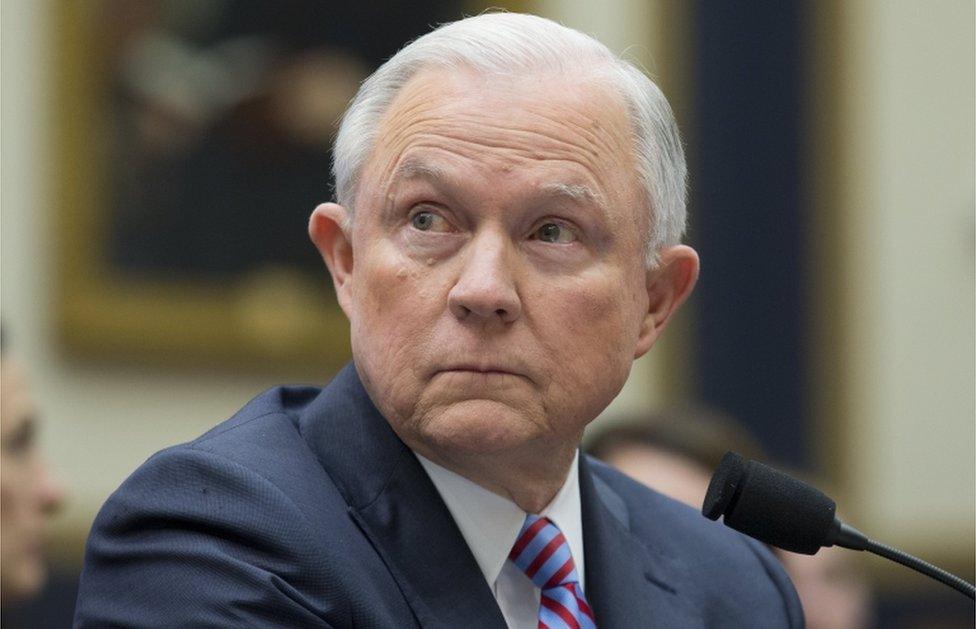
US Attorney General Jeff Sessions has been interviewed by the Mueller inquiry
Four people have already been criminally charged as part of Mr Mueller's investigation.
Michael Flynn, the president's former national security adviser, pleaded guilty to lying to the FBI about a meeting with a Russian ambassador.
Former Trump campaign manager Paul Manafort has been charged on 12 counts, including conspiring to defraud the US in his dealings with Ukraine, and conspiracy to launder money.
Mr Manafort's business associate Rick Gates was also charged with conspiracy to launder money.
A third adviser to the campaign - George Papadopoulos - pleaded guilty to lying to the FBI.
- Published25 January 2018
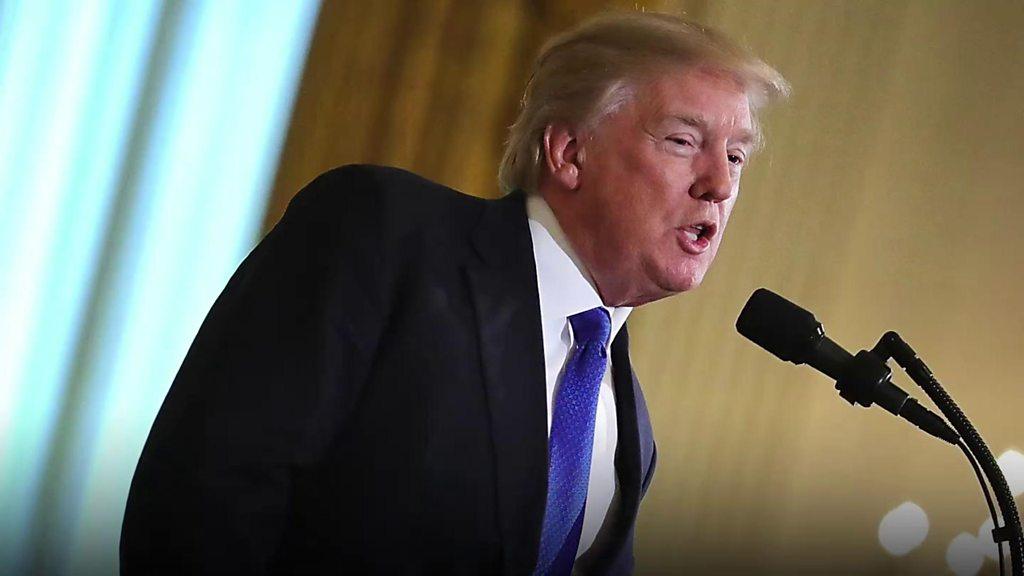
- Published24 January 2018
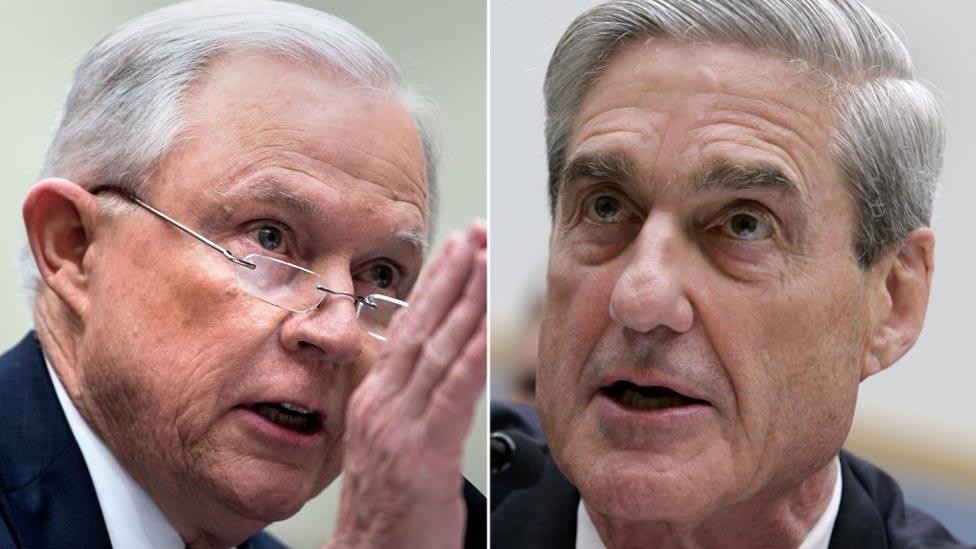
- Published25 March 2019
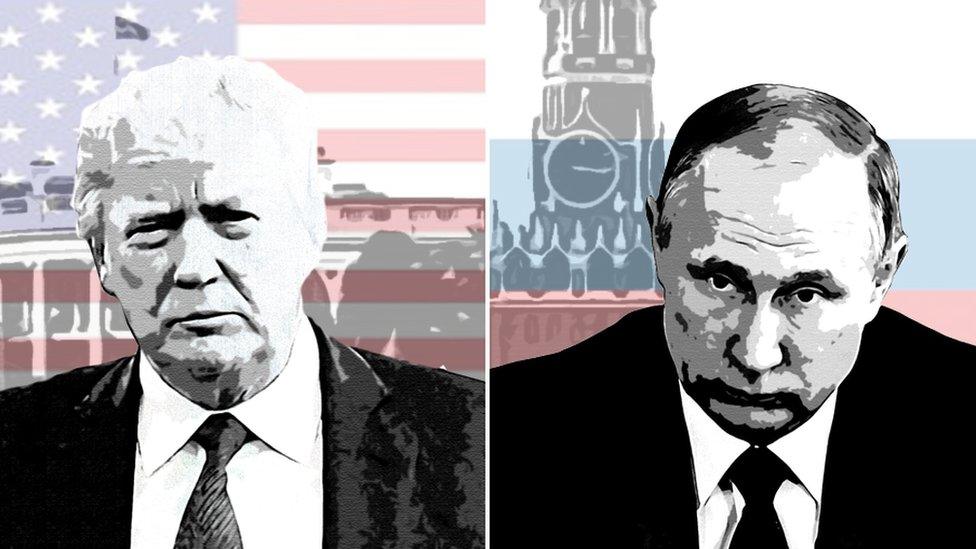
- Published21 December 2017
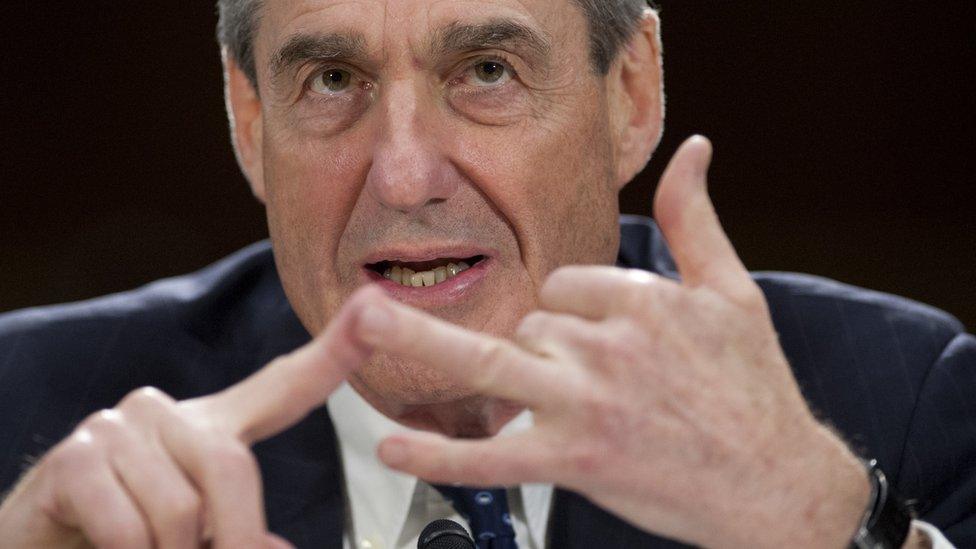
- Published20 December 2017
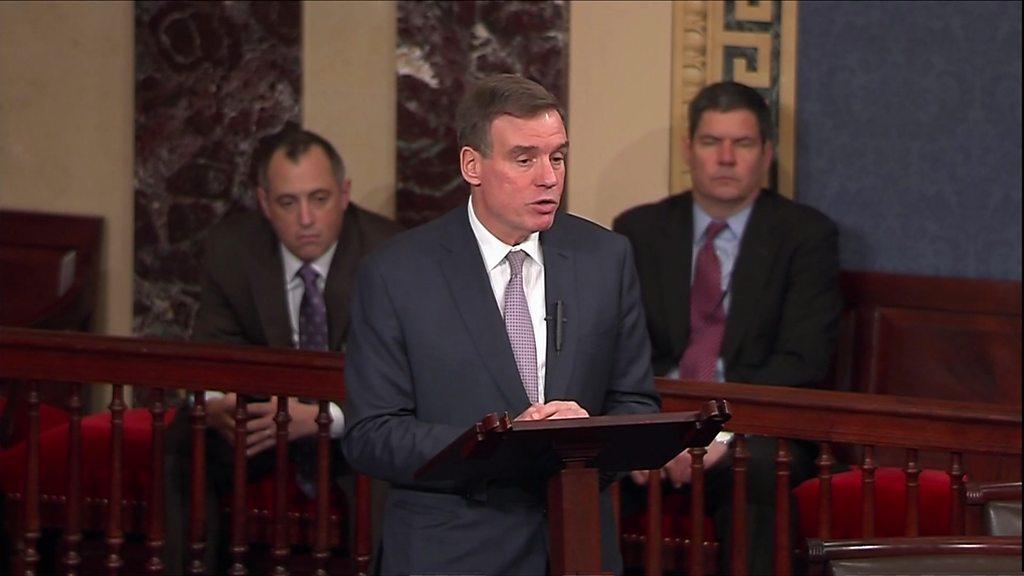
- Published17 December 2017
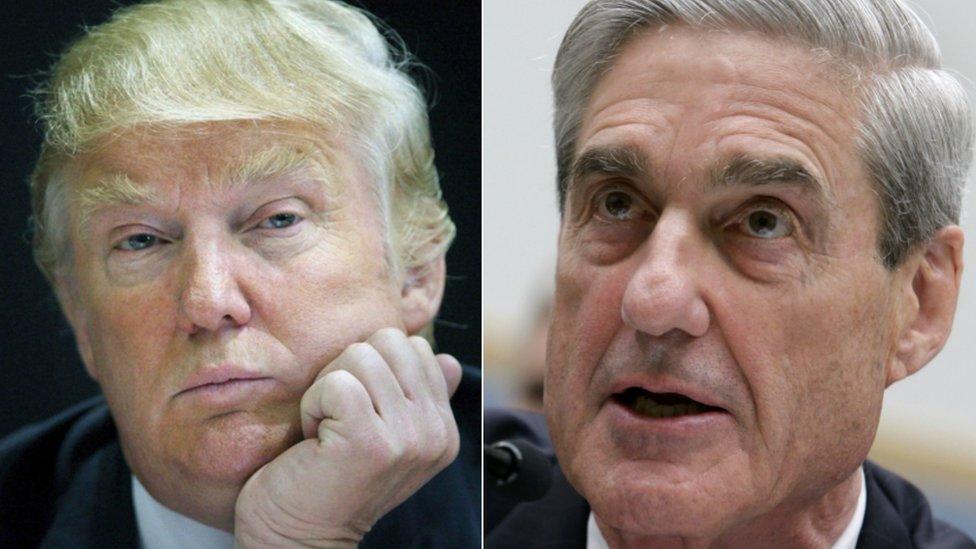
- Published23 June 2017
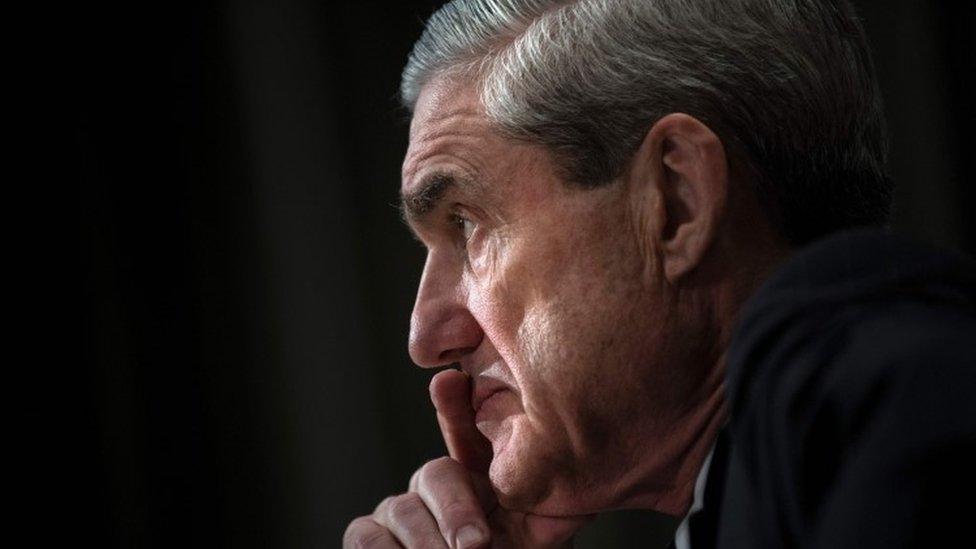
- Published24 July 2019
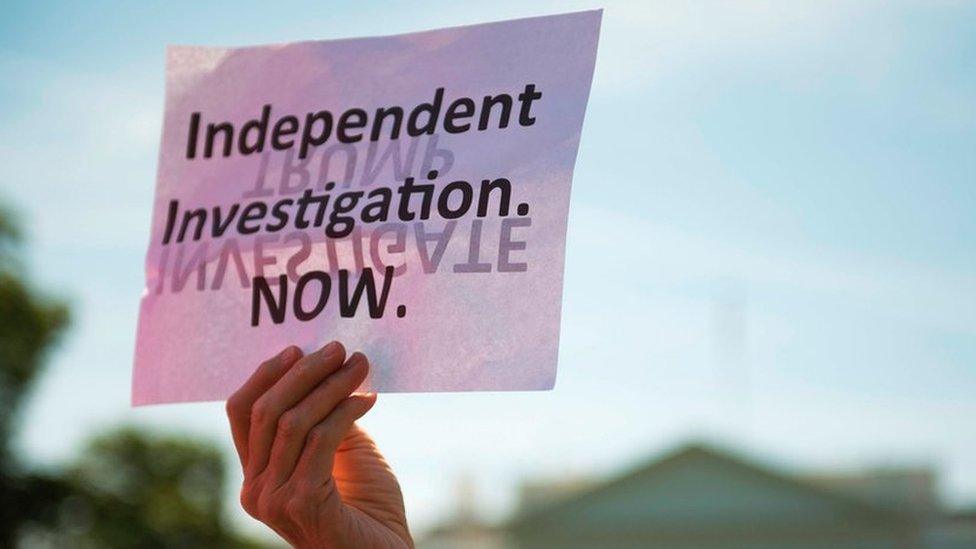
- Published10 May 2017